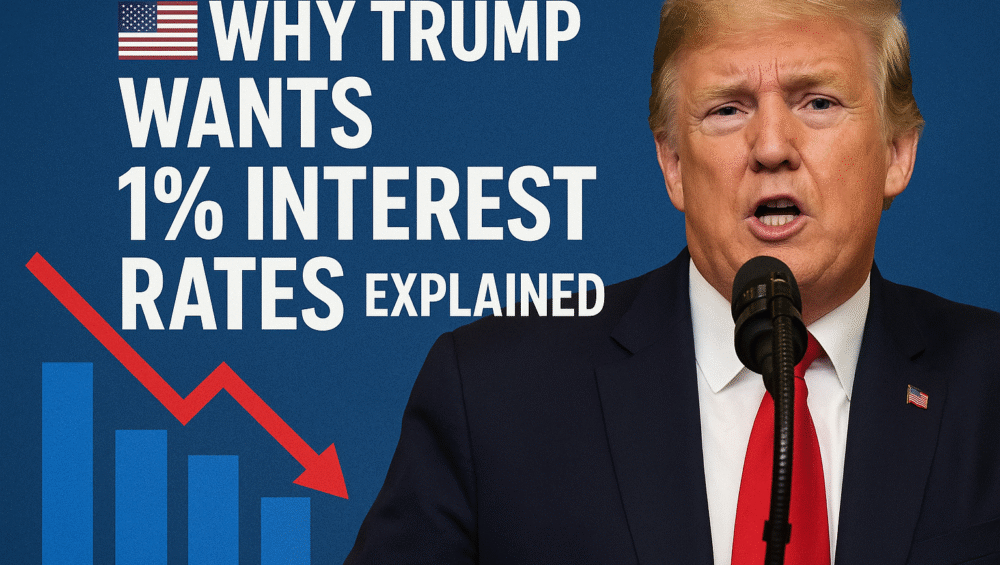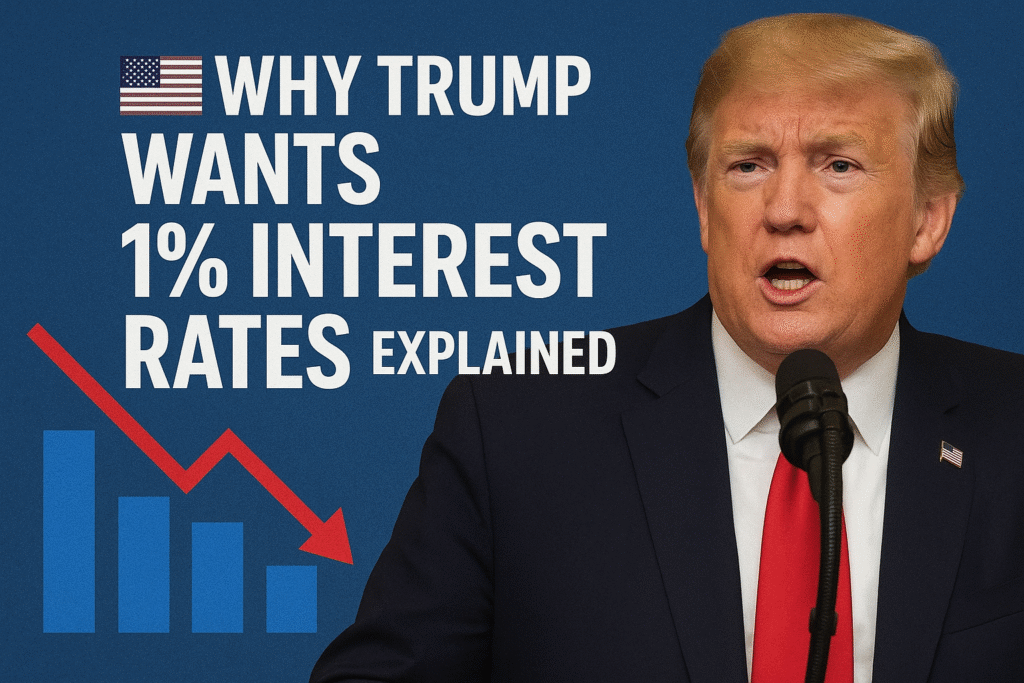Why Trump Wants 1% Interest Rates — Explained
On August 12, 2025, President Donald Trump renewed his calls for a dramatic interest rate cut — urging the Federal Reserve to slash rates to just 1% or even lower. With the current benchmark rate sitting between 4.25% and 4.50%, such a move would mark one of the sharpest monetary policy shifts in modern U.S. history. Supporters say lower rates could boost growth and reduce borrowing costs, while critics warn it could reignite inflation and threaten central bank independence.
In this post, we break down why Trump is pushing for a 1% Fed rate, the potential economic impact, and what might happen next.
📉 Current Interest Rate Environment
The Federal Reserve has maintained elevated rates since 2022 to fight persistent inflation, aiming for its 2% target. As of mid-2025, inflation remains above target but has cooled from its peak.
-
Current Fed funds rate: 4.25% – 4.50%
-
Inflation: Moderating but still a concern
-
Goal: Keep prices stable while avoiding recession
For Trump, however, these rates are “way too high,” arguing that they slow growth and put unnecessary strain on businesses and consumers.
💡 Why Trump Wants Rates at 1%
Trump’s push for a 1% interest rate appears to be driven by three main motives:
-
Lower Government Borrowing Costs
With national debt exceeding $35 trillion, lower rates could ease the federal government’s interest payment burden, freeing up funds for other spending priorities. -
Stimulating Economic Growth
Cheap borrowing encourages businesses to invest and consumers to spend, potentially boosting GDP ahead of the 2026 election cycle. -
Political Pressure on the Fed
Trump has repeatedly clashed with Fed Chair Jerome Powell, even suggesting he might replace him before his term ends. Installing a chair aligned with his monetary policy vision could help push through rapid rate cuts.
⚠️ Risks of a 1% Interest Rate
Economists warn that cutting rates too quickly could backfire:
-
Inflation Surge: Cheap borrowing can drive demand higher, risking another wave of price increases.
-
Market Volatility: Sudden shifts in monetary policy could spook investors and destabilize bond markets.
-
Weakened Fed Credibility: Political interference undermines trust in the Fed’s independence, potentially harming long-term stability.
History offers cautionary tales — in the 1970s, political pressure on the Fed to keep rates low contributed to runaway inflation.
🏛️ Fed’s Response
Fed Chair Jerome Powell has so far resisted Trump’s demands, emphasizing data-driven decisions rather than political pressure. The central bank’s mandate — balancing price stability with maximum employment — remains its guiding principle.
However, Trump has hinted at nominating new Fed governors sympathetic to his approach, potentially reshaping the board’s stance on rate cuts in the coming months.
🔮 What Happens Next?
The next few months could be decisive:
-
If inflation continues to cool → The Fed may consider gradual cuts, though nowhere near Trump’s proposed 1% level.
-
If economic growth slows → Pressure for bigger cuts could grow, boosting Trump’s argument.
-
If political tensions rise → Fed independence could face unprecedented challenges.
📌 Bottom Line
Trump’s call for 1% interest rates is bold, politically charged, and economically risky. While lower borrowing costs might give short-term relief to businesses and consumers, history suggests that aggressive cuts in an inflation-prone environment could have long-term costs.
For now, all eyes are on the Federal Reserve, the White House, and the latest economic data to see whether this tug-of-war ends in compromise or confrontation.






